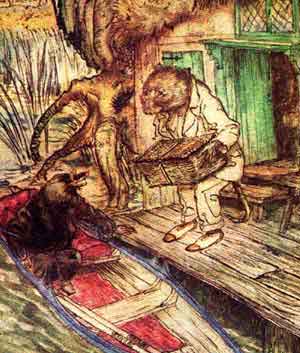The first time I read Bellow was in high school, and it was Herzog - was that naive, or what? - and it was as difficult (and as wonderful, as incomprehensible) as anything I'd ever worked through. I re-read it twenty years later and Moses's skin could have been my own. By the second reading I'd lived in Hyde Park and Chicago longer than I had anywhere else, been schooled to know the minds he was writing obsessively to, and had had enough experience to be half-cracked myself. I was standing in line for a movie in LA with a doctor friend when I told him about the clarity of the second reading, and he said, "Well, you know, he's having a psychic break..." Shit, I had become used to everyone being like that; why do docs have to be such diagnosticians?
You start thinking seriously and you get restless. Bellow's people (Augie and Henderson and Herzog and Charlie Citrine, among others) are running, far and near, physically and mentally, not from but to. The body's appetites can be strong, but the mind's are even stronger - and sometimes you lose a lot in the fight to satisfy them. If some of his people run into walls or dead ends, it's head on.
I never met him, though I saw him often ay UofC and heard about him constantly. He'd come into Soc Tea with some lovely girls in tow, very dapper, a small man with a large head and big, alert, polished brown eyes. Everyone seemed to know if he'd fastened those eyes on someone else's faculty wife. He wanted to come over and read from an unpublished manuscript at the home of a professor (I was rooming there that year), and Mrs. Professor had doubts:
- (Mr. Professor) - What's the matter? Do you think he might start thinking of
you as the next Mrs. Bellow?
- (Mrs. Professor) - Well, (beat), yes..
Another professor, one I worked for, was old friends with SB's wife of the time and a frequent guest; it was a foregone conclusion that there was a limit on these things. As I said, restless.
Alfred Kazin, as I recall, thought that the influence of more conservative colleagues like Edward Shils had made Bellow recoil from a politics and culture that had been, perhaps, too liberal for its own good. Ravelstein is based on Allan Bloom, who, now famously, saw more loss than gain in the destruction of the high/low categories that the market triumph of popular culture brought with it. Bellow married high and low, too. I wish all of them had stuck around long enough to see how seriously they are taken by us little barbarians. We're restless, too, and we will find more and more in Herzog's letters to the dead thinkers whose ideas remain alive.

No comments:
Post a Comment